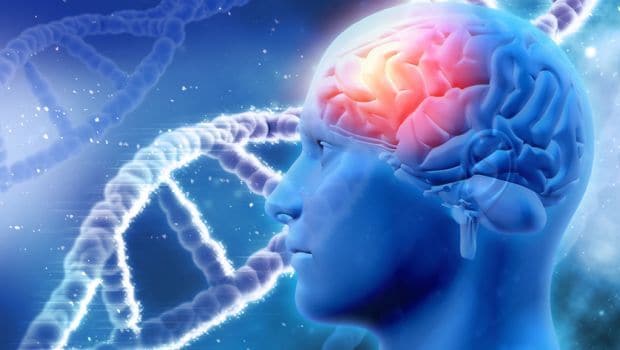Brain Scans Can Predict a Baby’s Future Risk of Anxiety and Depression

Not too long ago mental diseases were not really spoken about openly. If anyone was undergoing any treatment, it was all hushed about and done behind closed doors. Now, with more and more people and celebrities voicing their opinions and sharing their experiences on social platforms, those affected are learning to open up rather than ignoring the issue at hand and suffering alone. The kind of lifestyles we lead today, stress is almost inevitable. And stress is what gives rise to many other health issues, as we start ignoring our health and succumb to it. Now of course there are various therapies and effective steps that one can take to overcome anxiety and other issues. You will find a lot of help on the internet as well, besides consulting a shrink. But perhaps some are taking this issue a little too seriously, in an attempt to curb the issue as early as possible.
As per a new study published at the American Academy of Child and Adolescent Psychiatry journal, it has been predicted that early predictors of anxiety and depression may be evident in the brain even at birth. In short, it may be possible to predict if your newborn baby is susceptible to depression and other anxiety related issues in the future.
By analyzing brain scans of newborns, the researchers found that the strength and pattern of connections between the amygdala and certain brain regions predicted the likelihood of the babies developing greater internalizing symptoms like sadness, excessive shyness, nervousness, or separation anxiety by age two. Such symptoms have been linked to clinical depression and anxiety disorders in older children and adults.

Assistant professor of child psychiatry said, “The fact that we could see these connectivity patterns in the brain at birth helps answer a critical question about whether they could be responsible for early symptoms linked to depression and anxiety or whether these symptoms themselves lead to changes in the brain. We have found that already at birth, brain connections may be responsible for the development of problems later in life.”
The researchers looked for differences in the connectivity patterns across various regions of the brain hoping to find evidence to explain why premature babies face a greater risk of developing psychiatric problems – including depression and anxiety — later in life. In particular, the team focused on how a structure involved in the processing of emotions, called the amygdala, connects with other brain regions. The researchers evaluated 27 of the children who were born prematurely and 17 born at term.
The researchers also want to evaluate all the children from the study again when they are 9-10 years old to learn whether brain connections continue to influence the risk for depression and anxiety disorders.
[“source-ndtv”]




